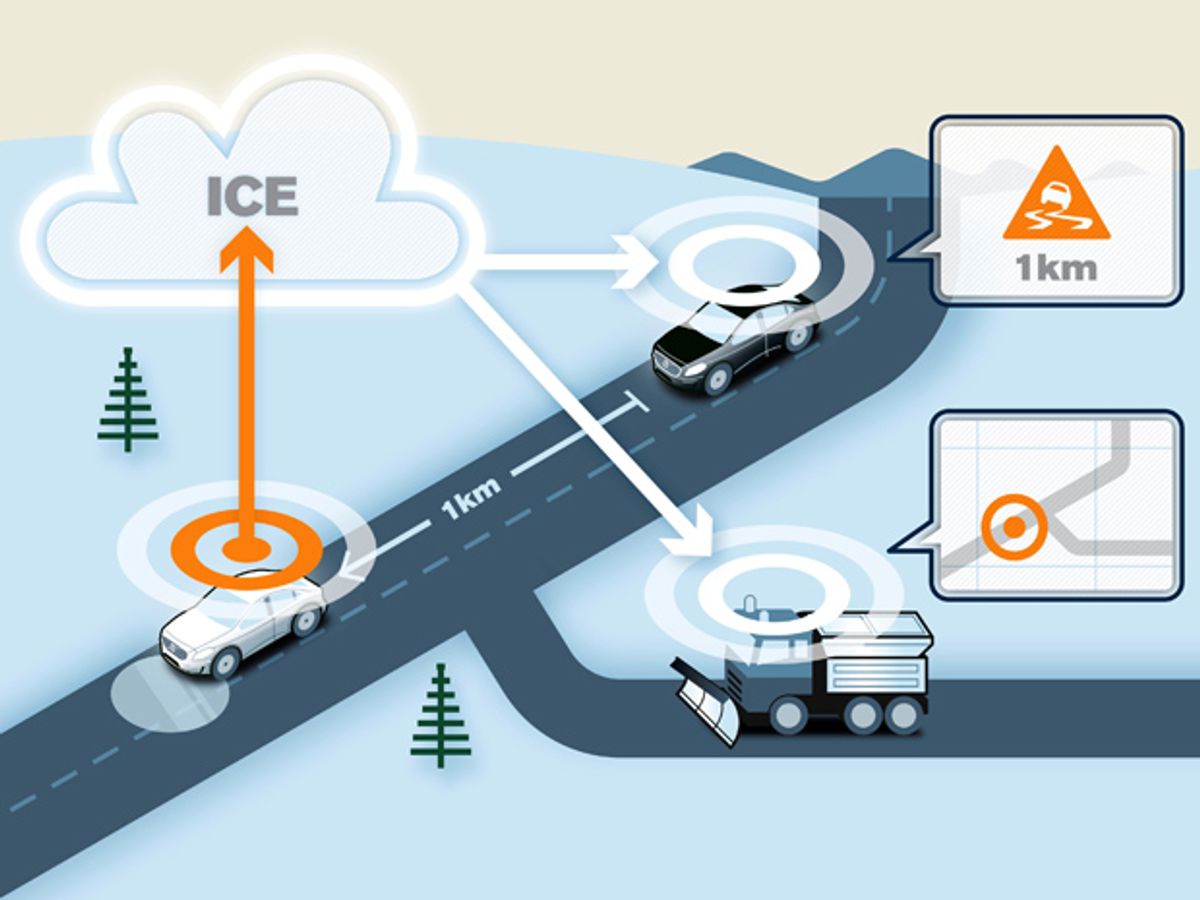Most drivers have to fight icy patches during bad winter weather by themselves. Swedish carmaker Volvo envisions a different world where cars share information with one another about slippery road conditions—and it’s building a roving swarm of 1000 smart cars to test the idea.
Volvo’s test fleet of cars would rely upon a cloud-based network to share information about driving conditions. If one car encounters an icy patch, it could transmit a slippery-road warning broadcast to other cars in the fleet. Another car that might have to stop and put on its hazard lights would also automatically broadcast its location to nearby vehicles. Those two features serve as first steps toward a grander vision for Volvo.
“This will bring us closer to our safety vision that by 2020 no one should be killed or seriously injured in a new Volvo car,” said Erik Israelsson, project leader of the Cooperative Intelligent Transport System at Volvo Cars, in a press release.
The cloud-based warning system could also alert public officials about where they need to tackle winter road maintenance. Volvo Cars is working on the new project with the Swedish Transport Administration and the Norwegian Public Roads Administration.
Part of the project involves Volvo boosting its current test fleet of 50 cars to 1000 cars. The carmaker plans to deploy the test fleet to Gothenburg in Sweden and Oslo in Norway to see how the system fares in deep winter conditions.
Volvo also plans to test other concepts for communicating road safety alerts through cloud-based networks. A separate warning system aims to alert both car drivers and bicycle riders in case of impending collision so that both can take action.
That’s all well and good as long as human drivers remain behind the wheel. But Volvo, like Google, also wants to test autonomous vehicle technologies that could potentially react much faster to dangerous situations than any human. For instance, Volvo’s engineers are developing trucks that can automatically take over the steering or brakes to avoid accidents. A separate fleet of Volvo cars is also testing self-driving robot car technology on the streets of Gothenburg.
Jeremy Hsu has been working as a science and technology journalist in New York City since 2008. He has written on subjects as diverse as supercomputing and wearable electronics for IEEE Spectrum. When he’s not trying to wrap his head around the latest quantum computing news for Spectrum, he also contributes to a variety of publications such as Scientific American, Discover, Popular Science, and others. He is a graduate of New York University’s Science, Health & Environmental Reporting Program.



